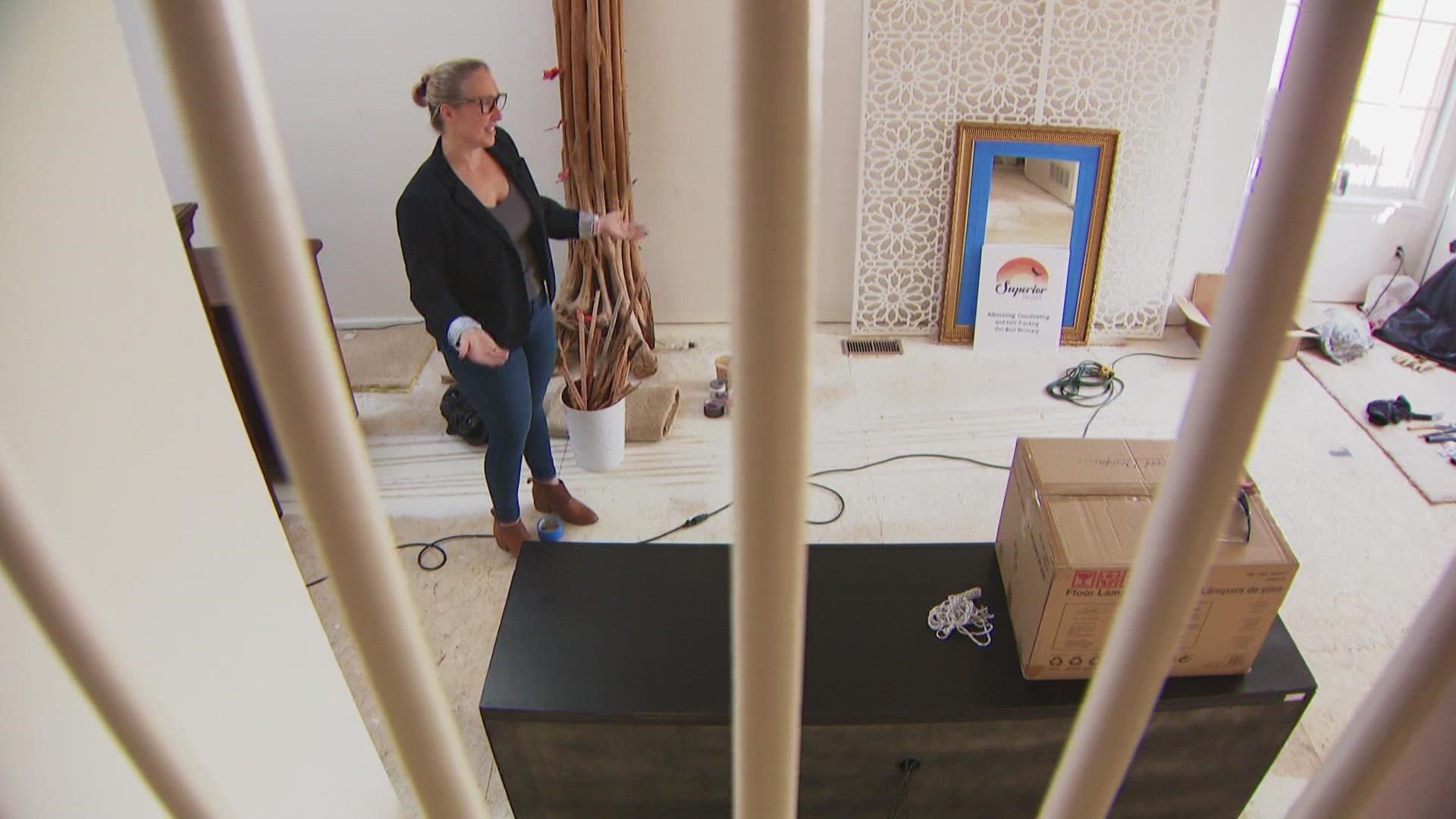SUPERIOR, Colo. — Nearly four months after the Marshall Fire, people whose homes were impacted by the smoke still wonder if it's safe to move back.
One family in Superior said some insurance companies are not helping their neighbors pay for cleaning or mitigation efforts.
"You didn't lose your home, but you still have this very huge list of to-dos to get to a safe place again," Jenn Kaaoush said.
Kaaoush and her family moved back into the home after finishing some mitigation work they thought would be enough to live there safely. Then, Kaaoush said, her daughter was getting sick from the smoke damage.
"My daughter who has respiratory issues was getting progressively more sick," she said. "I sent all of her records to the insurance company and said, 'look, this is the situation.'"
Kaaoush said the company sent out a hygienist to do some tests. When the results came back, the insurance company said they would cover the costs of cleaning and other mitigation efforts.
"It's pretty frustrating I had to use my daughter's medical condition to force the insurance company to do something to help us," she said.
Kaaooush said some of her neighbors are still fighting for help.
"People are starting to find other resources like moving in with family members or paying out of pocket to stay in a hotel which, again, is a huge ask that they should not be asked to do," she said.
Kaaoush is the co-director of Superior Rising, a neighborhood group founded in January to serve the long-term needs of residents impacted by the disaster. This is one of the biggest issues she's hearing about from families right now.
Neighbors didn't think they would be facing this type of challenge with homes that survived the fire.
"People are pissed insurance isn't doing what we expect them to do to get us to a better place," Kaaoush said. "It is just infuriating that anybody has to advocate for support or they have to be strong to fight against insurance."
Earlier this year, a chemistry professor at the University of Colorado began testing homes near burned properties in Superior to measure tiny particles and gases that the fire left behind.
Joost de Gouw said preliminary results in February showed indoor air contains higher concentrations of most chemicals. Researchers found that air cleaners with activated carbon reduced those concentrations indoors, but concentrations increased after turning off the air cleaner.
Since then, the team at CU has completed a survey with a mass spectrometer inside multiple homes -- both homes impacted by smoke and homes in Boulder that were not impacted.
They found that in homes impacted by smoke, the levels of some toxins in the air went back to normal after a few weeks.
"Smoke-impacted homes also had a lot of ash and soot inside them. That constitutes another health risk that our study has not addressed in as much detail," de Gouw said.
As of Monday, the Colorado Division of Insurance has fielded 34 complaints related to "smoke, soot, and ash" claims. The state investigates every complaint, and most of these are still being investigated.
When people contact the division with these issues, the division gives them this information:
- If there is visible soot or ash, testing should not be needed for the cleaning to be done. Once the cleaning is complete, if they still have concerns, they can request to their insurance company that the property be tested.
- Generally, the insurance companies will send an adjuster back to the property to review the concerns before allowing testing. Some companies will agree to do the tests. Others will not.
- If the company does not agree to the testing, residents can hire their own company to do the testing. Then, if the results support the homeowner's assertion, the insurance company should reimburse for the testing and pay for additional mitigation or cleaning. The company should also continue to pay for additional living expenses, like hotel expenses.
- However, if the testing results do not show any toxins or residue, the homeowner will not be reimbursed and there won't be any additional mitigation or cleaning paid for by the company. When testing results do not show toxins or residue, the insurance company will cease the additional living expenses payments.
In March, the Colorado Division of Insurance asked insurance companies to work with homeowners on these types of claims, including testing, cleaning, repairing and replacing items. The state's consumer services team said they are hearing that most companies are living up to their agreement to the request.
SUGGESTED VIDEOS: Marshall Fire Coverage

